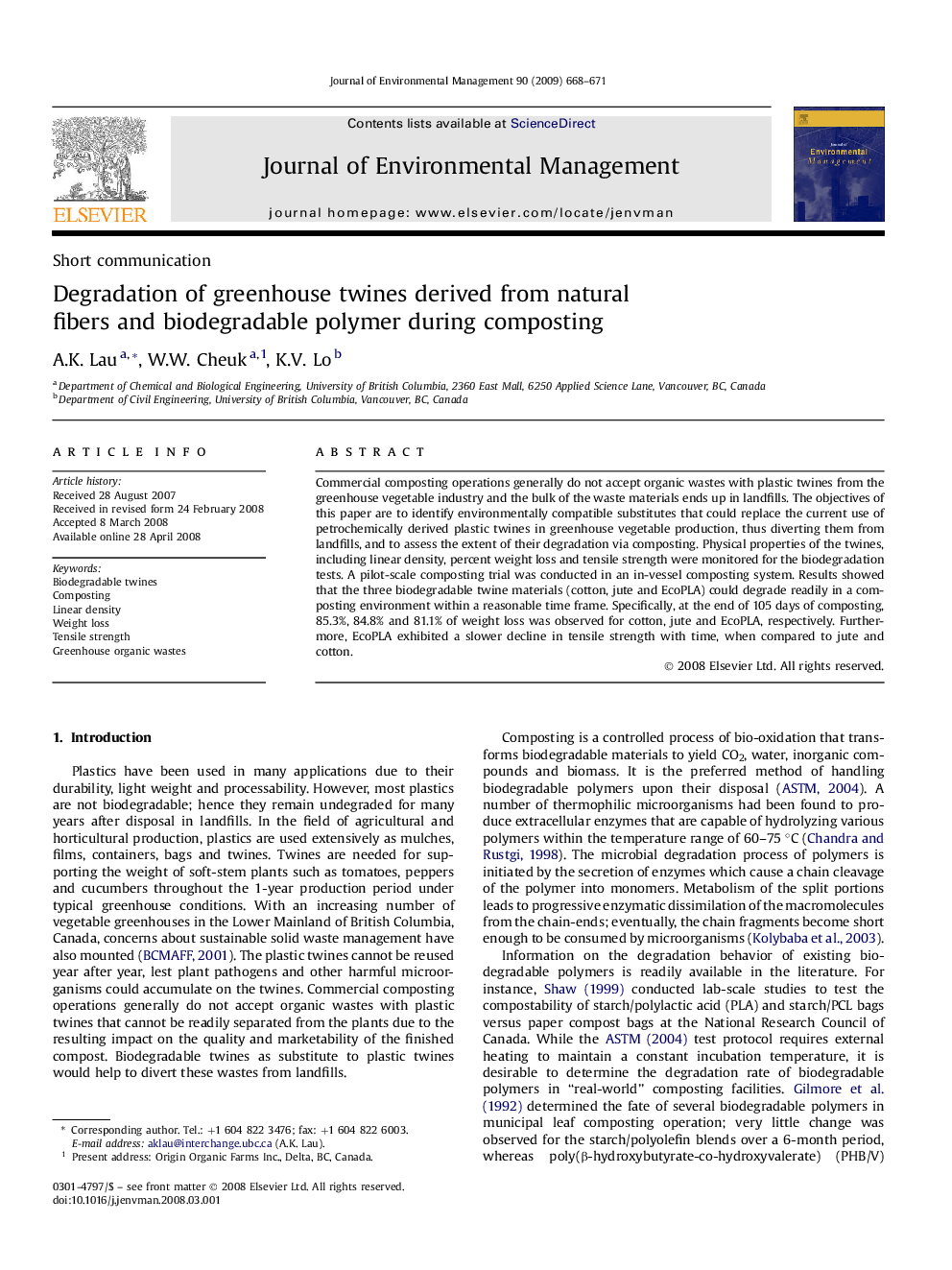| Article ID | Journal | Published Year | Pages | File Type |
|---|---|---|---|---|
| 1058134 | Journal of Environmental Management | 2009 | 4 Pages |
Commercial composting operations generally do not accept organic wastes with plastic twines from the greenhouse vegetable industry and the bulk of the waste materials ends up in landfills. The objectives of this paper are to identify environmentally compatible substitutes that could replace the current use of petrochemically derived plastic twines in greenhouse vegetable production, thus diverting them from landfills, and to assess the extent of their degradation via composting. Physical properties of the twines, including linear density, percent weight loss and tensile strength were monitored for the biodegradation tests. A pilot-scale composting trial was conducted in an in-vessel composting system. Results showed that the three biodegradable twine materials (cotton, jute and EcoPLA) could degrade readily in a composting environment within a reasonable time frame. Specifically, at the end of 105 days of composting, 85.3%, 84.8% and 81.1% of weight loss was observed for cotton, jute and EcoPLA, respectively. Furthermore, EcoPLA exhibited a slower decline in tensile strength with time, when compared to jute and cotton.
